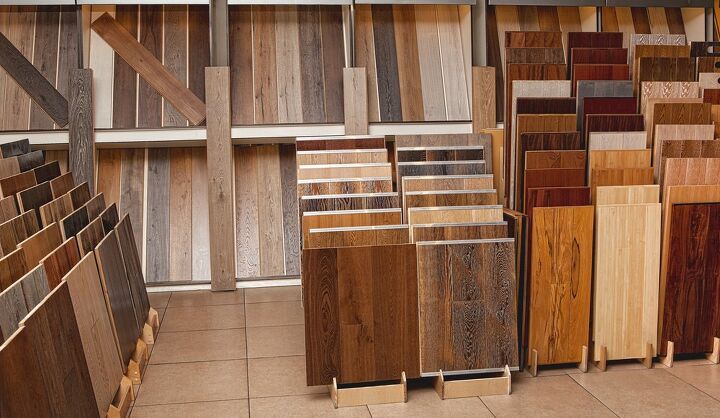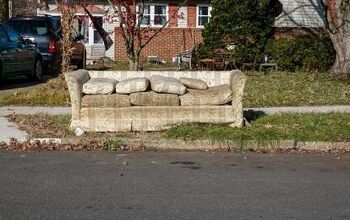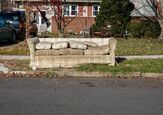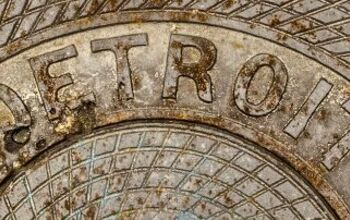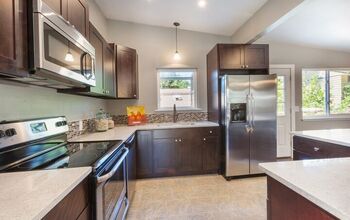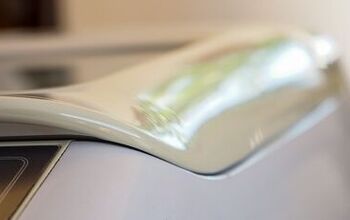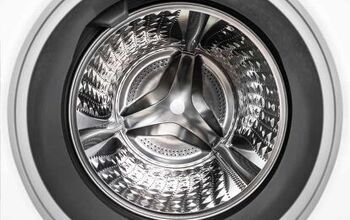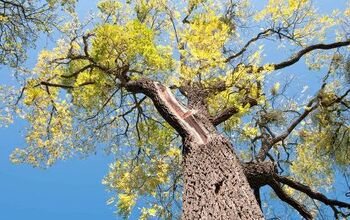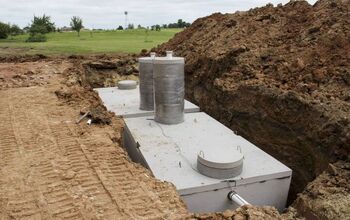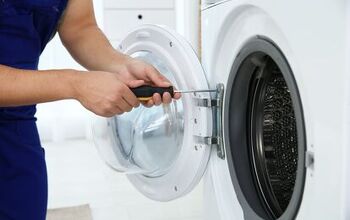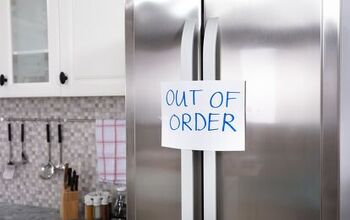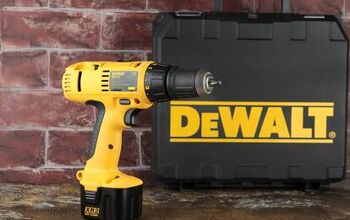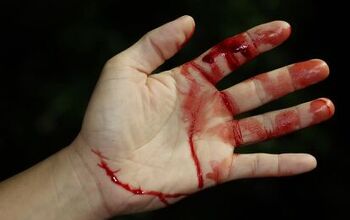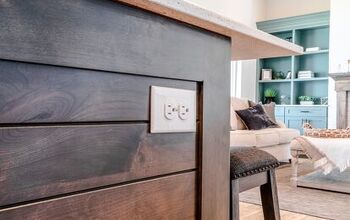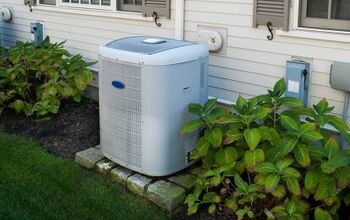What Are The Pros And Cons Of Eucalyptus Flooring?

The beauty of wood flooring is something many homeowners pine for. While it can be expensive, attractive and affordable wood flooring is also attainable. But what about attractive, affordable, and eco-friendly wood flooring?
There are a few options that fall into this category, including bamboo and cork. But another wonderful choice is eucalyptus.
Grown in several tropical regions across the world, eucalyptus is a sustainable hardwood because of its fast growth. Though not waterproof, eucalyptus is resistant to moisture and highly durable. It is harder than most available hardwoods. The average price of eucalyptus ranges from $5-$7 per square foot, making it more affordable than other floorings. However, eucalyptus can be difficult to find in stores.
Do You Need to Hire a Flooring Contractor?
Get free, zero-commitment quotes from pro contractors near you.

The Eucalyptus Plant
People often associate eucalyptus with Australia and the koalas that feast on it. The plant grows abundantly Down Under as well as in the tropical regions of South America and Asia.
Pro: Similar to bamboo, eucalyptus has a fast growth rate, reaching full maturity between 3 and 10 years. Compared to hardwood, which takes 25-50 years to mature, harvesting eucalyptus is much easier on the environment.
Appearance
With over 600 species of eucalyptus, expect versatility in its appearance. The colors range from smoky white to rich chocolate brown. But the most common color among species is light tan similar to the color of white oak.
Eucalyptus looks more like hardwood than bamboo. It has a straight grain that doesn’t draw too much attention, allowing it to fit both modern and traditional styles.
Con: Eucalyptus tends to absorb stains unevenly. In order to refinish eucalyptus wood, you have to use a gel-based stain. Eucalyptus comes in a variety of colors. So, it may be easier to keep it natural and choose a color that fits your style rather than trying to refinish it.
Durability
Most eucalyptus flooring manufacturers include a 25-year warranty, though some go as high as 50 years. That says a lot about the wood’s durability.
Eucalyptus is manufactured in a few different formats, the most durable being strand-woven eucalyptus. Strand-woven eucalyptus is produced by weaving together strips of eucalyptus and compressing them under extreme heat. When produced this way, eucalyptus is twice as hard as red oak.
It resists dents and scratches very well, making it an excellent floor for high traffic areas and households with pets or rowdy kids.
Pro: Strand-woven eucalyptus wood has a hardness scale ranging from 3,000-5,000. For reference, red oak has a 1290 hardness rating. This means eucalyptus can last a long time without needing repairs or replacement.
Moisture-Resistant
Another component of eucalyptus’s durability is its resistance to moisture. While it’s not waterproof, the hardness of eucalyptus means moisture doesn’t penetrate it easily. However, you still have to take precautions and not leave standing water on eucalyptus flooring.
Pro: Because eucalyptus is grown in tropical regions, it’s used to high levels of humidity. It makes a great flooring option in locations where humidity levels run high. That means it can be installed in basements, kitchens, and even bathrooms!
Low-Maintenance
In addition to its durability and resistance to moisture, eucalyptus flooring is very low-maintenance. The only necessary cleaning is sweeping and vacuuming the floor once a week. Occasionally, you can run a damp mop across the floor or use hardwood floor cleaner. Remember to wipe up spills as soon as possible to avoid standing water.
Pro: Harsh chemicals are not required to keep these floors clean, which keeps indoor air pollution to a minimum.
Easy to Install
To install eucalyptus floors, you can either glue or nail them down or float them over your existing flooring. Most eucalyptus flooring is available in tongue and groove form or click and lock form.
Pro: Installation is simple for DIY-ers. Even the most inexperienced can install eucalyptus floors in a single day.
Cost of Eucalyptus Flooring
Eucalyptus flooring is a bit more expensive than bamboo, though still very affordable. Bamboo is 1/3 of the cost of hardwood and 20% cheaper than eucalyptus.
The cost of eucalyptus wood averages $5-$7 per square foot. The ample supply of eucalyptus is what keeps the cost so low.
Pro: Roughly half the price of hardwood floors, eucalyptus lasts longer than hardwoods, too. They are a great investment due to their inexpensive cost and long-lasting durability. Because there is no need to pay professional installers, this also keeps the overall cost down.
Eco-Friendly
The biggest advantage of having eucalyptus flooring is its sustainability factor. As we mentioned before, hardwoods take up to 50 years to mature. Eucalyptus grows 5 to 16 times faster than hardwood. The U.S. Green Building Council classifies eucalyptus as a rapidly renewable resource because of its fast growth rate.
The following are other ways in which eucalyptus is eco-friendly:
- In addition to its quick growth, eucalyptus can also be grown throughout the year. This reduces soil erosion and the destruction of habitats.
- Eucalyptus can survive in dry climates so it uses less water.
- With eucalyptus being the main food source for koalas, it might seem like harvesting it is harming the Australian environment. However, this is not the case. Commercial flooring is done out of Asia and South America. No koalas are harmed in the making of eucalyptus floors.
- Choosing eucalyptus floors that are sourced from China is actually better for the environment. Regardless of the species, most US wood is shipped to China for manufacturing. So, buying eucalyptus that was sourced from China in the first place cuts down on carbon emissions.
Ensuring Eco-Friendliness
Even if the eucalyptus has been sourced responsibly, the adhesives and glues used in the manufacturing process may undo some of its eco-friendliness.
You can check to make sure your flooring is sourced responsibly by looking for Forest Stewardship Council (FSC) certification. This is proof that the forest owners who harvested the wood did so ethically and that they met basic environmental standards.
You can also check your product’s FloorScore certification to ensure the surfacing and other associated products meet the standards regarding VOC emissions.
Cons of Eucalyptus Flooring
There really aren’t a whole lot of bad things about eucalyptus floors. The main disadvantage is their lack of availability. But doesn’t eucalyptus grow abundantly?
Similar to bamboo in this regard, eucalyptus is plentiful but not widely popular in the flooring market. Therefore, their supply is limited in stores. To see more styles and colors, it’s possible you’ll have to search online for eucalyptus floors.
Cost Guide
Eucalyptus flooring is available in solid or engineered planks. Below is a comparison chart of some of the most popular brands of eucalyptus flooring.
| Brand | Price per Sq Ft | Type | Price for 100 Sq Ft |
| Ambient | $4.97 | Solid Strand | $497 |
| Cali Bamboo | $5.99 | Solid Strand | $599 |
| Pinnacle Portofino | $3.49 | Engineered | $349 |
| Versini | $3.99 | Engineered | $399 |
Related Questions
How is bamboo different from eucalyptus?
For starters, bamboo is grass while eucalyptus is considered a hardwood. Eucalyptus tends to be slightly more expensive than bamboo. Aesthetically, they look different. Eucalyptus looks more like traditional hardwood, showing its straight grain and knots. Bamboo, instead, has nodules.However, both grow rapidly and go through the same manufacturing process of weaving and compressing strands under high heat. This makes both bamboo and eucalyptus very hard and highly durable.
What is rainbow eucalyptus and can I use it for my floors?
Rainbow eucalyptus is a unique tree whose bark appears multicolored. When you cut into the trunk, however, the wood starts green and ages to a reddish-brown. The rainbow tones do not carry through. Rainbow eucalyptus is also considered too rare for flooring or woodworking. It would not be an eco-friendly choice to use rainbow eucalyptus.
Is eucalyptus flooring right for my home?
Eucalyptus flooring can suit a variety of needs in any home. Its durability makes it a great floor in a home with children and pets. It also doesn’t expand when it comes in contact with moisture like other hardwoods.If you’re in the market for a virtually indestructible, eco-friendly floor, then eucalyptus is right for your home.
Do You Need to Hire a Flooring Contractor?
Get free, zero-commitment quotes from pro contractors near you.

Summing It Up
In the search to find something bad about eucalyptus flooring, all we came up with is that it’s hard to find. Stores carry it in limited quantities because it’s not yet a mainstream flooring option. So, you’ll most likely need to search online for the color and style you want.
That’s it. That’s the only bad thing.
Eucalyptus floors are durable. They are much harder than any hardwood flooring, resisting scratches and dents like nobody’s business.
Eucalyptus floors are eco-friendly. They grow at a rate unmatched by hardwood trees, making them a renewable resource. They can be grown throughout the year and need less water which helps keep surrounding habitats intact.
Eucalyptus floors are inexpensive. Though they do cost more than bamboo floors, they are still cheaper than hardwoods, averaging $5-$7 per square foot. They last longer and are easier to install as well.
Eucalyptus floors are low-maintenance. They don’t require harsh chemicals for cleaning and can be maintained with sweeping, vacuuming, and the occasional damp mop.
Here’s hoping the beautiful and versatile eucalyptus flooring becomes more widely available. Then, we can confidently say, it doesn’t have any cons!

Brigid Levi is a wife, mother, and freelance writer who enjoys a good DIY project and creating beautiful spaces within her home. From cleaning and organization hacks to home decor ideas, she loves helping people in their quest to turn a house into a home. Her hobbies include pretending to be Joanna Gaines while updating her home with her husband and performing in local theater productions.
More by Brigid Levi



